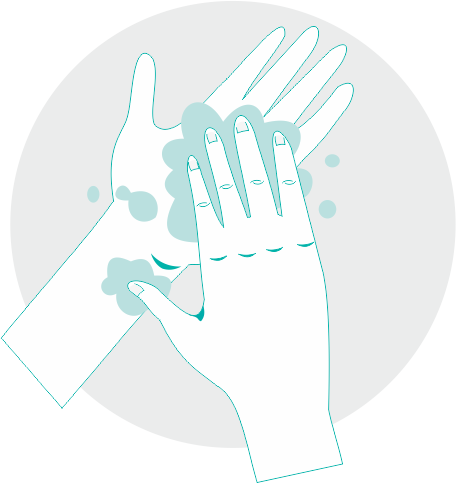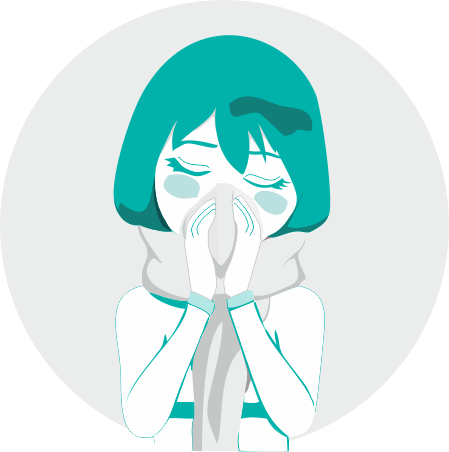What is neutropenia?
Neutropenia is a condition where there are abnormally low levels of neutrophils in the blood supply. Neutrophils are an important type of white blood cells, vital for fighting off acute bacterial infections and certain fungal infections. They generally represent 45 to 75 percent of white blood cells in the bloodstream. With no defense of the neutrophils, people would have trouble controlling infections and would run the risk of dying from an infection. The number of neutrophils in the blood of a healthy person is between 2,500 and 5,000 per cm3 of blood. Neutropenia occurs when the number of neutrophils falls below 2,000.
What causes neutropenia?
It has different causes, however, neutropenia in oncology patients is often caused by their treatment (radiotherapy, chemotherapy, biological treatment, etc.) There is not much you can do to avoid neutropenia but to lower your risk of developing an infection while your neutrophil count is low.
What are the warning signs?
- Fever.
- Chills.
- Cough, sore throat, nasal congestion, shortness of breath.
- Burning while urinating.
- Diarrhea or changes in the characteristics of your stools (frequency, color, mucus, etc.).
- Rash, redness, or swelling of the skin.
- Redness or pain around catheters, feeding tubes, or a wound.
- Pain or swelling in your mouth or throat, ulcers or white areas in your mouth, or a change in the color of your gums.
- Excessive tiredness, fatigue.
If you have neutropenia, what can you do to prevent infection during your hospital stay?
- Wash your hands continuously.
- Reduce the number of visits, 1 at a time is recommended.
- A GRAY sign will be placed on the door of your room, indicating that anyone who enters must wear a gown and a simple mask (this includes family members and visitors). The door must remain closed, as we do not want you to get an infection.
- During the period of neutropenia, ask your family members to avoid visiting with children under the age of 13 or anyone who is ill.
- Ask the staff that treats you to sanitize their hands before touching you; they will be happy to give adequate attention.

- If you have an IV, central or port catheter in place, do not touch it. Require any health personnel to sanitize their hands before handling the lines and ports.
- Keep proper oral care (brush your teeth with a soft bristle brush).
- Avoid any cuts or injuries.
- You should avoid flowers (natural or artificial, stuffed animals, newspapers, books and/or magazines, they can contain mites or other disease vectors.
- Do not use talcum powder or cosmetic powder.
- Eat only the food offered by the clinic, inform yourself about the restriction of your diet as it will depend on your own clinical condition. In general, raw foods, fruits, or salads are avoided.
- Do not keep food scraps in your room.
- Only when it is strictly necessary to leave your room, you should wear a mask.
- The clinic will provide you with adequate and continuous cleaning of your room.




